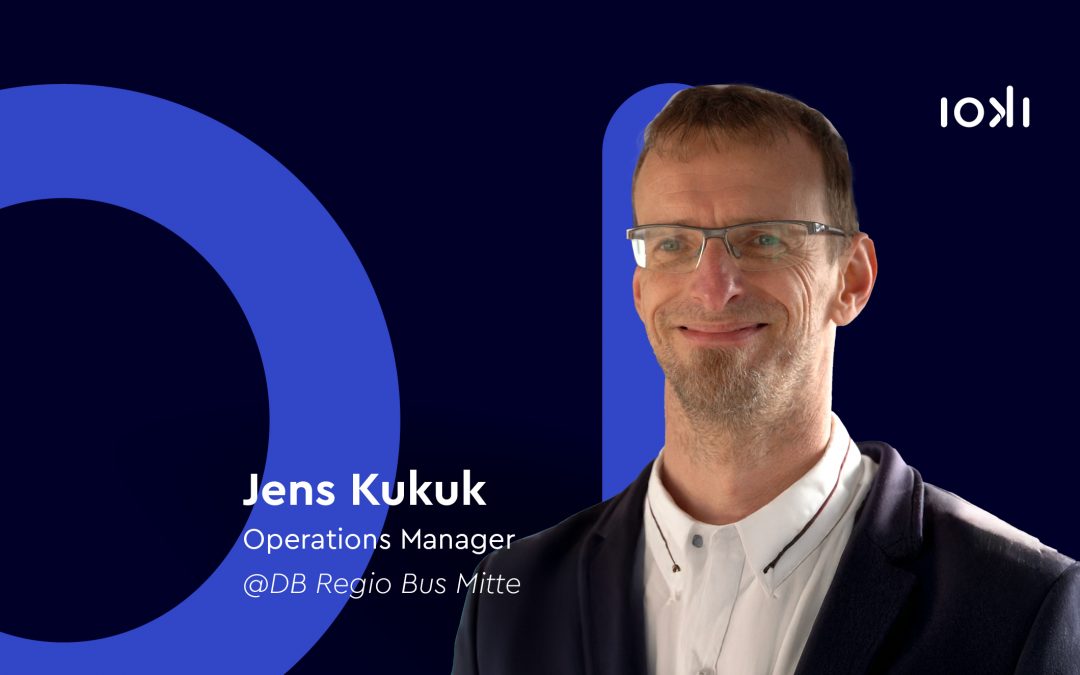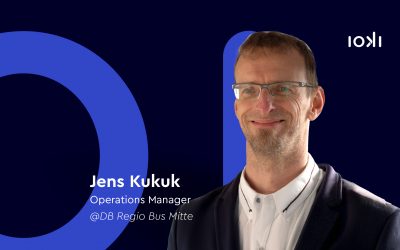Three years ago, we interviewed you for the first. At that time, Telekom MobilitySolutions had just converted the previously line-based shuttle service to an on-demand logic. How has the service been received by the employees since then?
Almost exactly three years ago, the Corona pandemic hit us and completely changed our mobility and travel behaviour overnight. Many of us worked from home and did without business trips, the use of all means of transport dropped sharply. For me and my team, the main question at that time was: What mobility services can we use to get our employees safely through the pandemic?
Switching our shuttles from a fixed timetable to on-demand mode was initially one of several ad-hoc solutions enabling our customers to continue to travel safely. At our headquarters in Bonn, passengers were even picked up at their homes on request. Booking via app allowed us at the same time to limit the number of seats in the vehicles and guarantee the necessary safety distance.
Looking back, I can say that although passenger numbers initially declined in the last three years due to the pandemic, we also made a big leap towards digitalisation during this time. Today, we can design routes more efficiently and minimise CO2 emissions at the same time. The shuttle services are better received than ever before and for many colleagues it is part of their daily routine to use our pooling and sharing apps. We are now even piloting shuttle routes in commuter traffic to cover the last mile.
From your perspective, what has changed in mobility behavior of employees in the last three years?
Corona has ensured that working hours and location have become more flexible. Home office – wherever possible – is now indispensable, commuter traffic is decreasing. Rail and bus were the big losers of the crisis, individual transport, whether car or bicycle, has been the means of transport of choice in recent years. This could be reversed with the introduction of the nationwide 49-euro flat rate ticket.
Irrespective of this, we notice that there is a growing desire among employees to get from A to B in a sustainable way. This can be seen, for example, in the fact that the Telekom-wide switch to electric mobility has been met with a very positive response. But the propulsion turnaround is only one of many facets. At the same time, we are seeing more and more colleagues willing to switch to shared mobility and cycling. Some are giving up a company car altogether and opt for a railcard and job ticket. Others are switching to their personal mobility mix from car subscription to car sharing. Improved micromobility offers and convenient apps are making it increasingly easier to use.
For us as a mobility provider, this means that our customers’ requirements have changed. Today, they no longer expect us to only provide classic ‘fleet management’, but also guaranteed mobility solutions tailored to their needs.
What are you planning next and what trends do you see in operational mobility?
The big topics are diversification, decarbonisation and digitalisation! It is crucial to cover all topics of corporate mobility management: Fleet, Human Resources, Travel and Real Estate Management. In the future, we need a holistic view of the topic to ensure the best possible customer experience. Especially since private and business mobility are increasingly merging.
The biggest lever is commuting, which is where we have to start! After all, this is where almost 70% of the pollutants on German roads originate from. It is the responsibility of employers to offer all employees access to flexible and affordable means of transport. And here the trend continues towards shared, networked and resource-saving offers. Many companies are already leading the way by integrating a wide variety of transport modes into their mobility mix. Job bikes, e-scooters or the good old factory busses are just a few examples. Others successfully rely on a mobility budget where employees have a certain amount of money to spend on the means of transport of their choice.
We at Deutsche Telekom also offer a so-called benefit budget model. This includes various options, ranging from a car to a Bahncard for up to two people. You can also have the money paid out, use it for a sabbatical or save it for retirement. In addition, we continue to work on expanding our portfolio: In the fleet, we will push ahead with electrification and expand the charging infrastructure. We are also focusing on even more convenient, low-threshold sharing options to increase vehicle utilisation. We will soon be launching a digital platform that links all modes of transport. Via one app, users will be able to access a multitude of providers in a region and receive a seamless offer that suits the respective travel situation.
Corporate mobility is increasingly becoming the pivotal point for change on Germany’s roads and rails. Because nowhere else are so many traffic jams and pollutants produced. We have understood our mission. Let’s move on!



